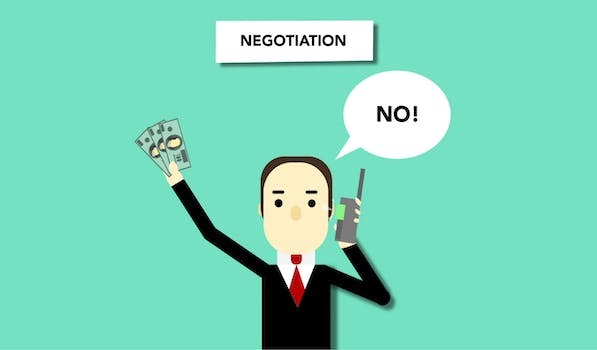How To Save Money Recession
Introduction

During a recession, it is important to be mindful of your spending habits and find ways to save money. By making small changes to your daily routine and being proactive about your finances, you can build up your savings and weather the economic downturn. Here are some tips on how to save money during a recession.
10 Simple Ways to Cut Your Expenses During a Recession
In times of economic uncertainty, it’s important to be mindful of your spending habits. A recession can be a challenging time for many people, but there are ways to cut your expenses and save money. Here are 10 simple ways to cut your expenses during a recession.
1. Create a budget
The first step to saving money during a recession is to create a budget. This will help you keep track of your expenses and identify areas where you can cut back. Start by listing all of your monthly expenses, including rent/mortgage, utilities, groceries, and transportation. Then, compare your expenses to your income and see where you can make adjustments.
2. Cut back on non-essential expenses
Once you have a budget in place, it’s time to cut back on non-essential expenses. This could include eating out less, canceling subscriptions you don’t use, and reducing your entertainment expenses. Look for ways to enjoy free or low-cost activities, such as hiking, reading, or spending time with friends and family.
3. Shop smarter
When shopping for groceries or other essentials, look for deals and discounts. Use coupons, buy in bulk, and compare prices at different stores. You can also save money by buying generic or store-brand products instead of name-brand items.
4. Reduce your energy usage
Reducing your energy usage can help you save money on your utility bills. Turn off lights and electronics when you’re not using them, use energy-efficient light bulbs, and adjust your thermostat to save on heating and cooling costs.
5. Use public transportation
If you live in an area with public transportation, consider using it instead of driving. This can save you money on gas, maintenance, and parking fees. You can also carpool with friends or coworkers to save even more.
6. Cut back on credit card usage
Credit card debt can quickly add up, especially during a recession. Try to pay off your credit card balances as soon as possible, and avoid using credit cards for non-essential purchases. If you do use credit cards, look for ones with low interest rates and no annual fees.
7. Cook at home
Eating out can be expensive, so try to cook at home as much as possible. This will not only save you money, but it can also be healthier. Look for easy and affordable recipes online, and consider meal prepping to save time and money.
8. Sell items you no longer need
If you have items in your home that you no longer need or use, consider selling them. You can sell items online through websites like eBay or Craigslist, or have a garage sale. This can help you earn extra money and declutter your home at the same time.
9. Use free resources
There are many free resources available that can help you save money during a recession. For example, you can borrow books and movies from the library instead of buying them, or use free online resources for education and entertainment.
10. Stay positive
Finally, it’s important to stay positive during a recession. Remember that this is a temporary situation, and that there are ways to save money and make it through. Focus on the things that are most important to you, and look for ways to enjoy life without spending a lot of money.
In conclusion, a recession can be a challenging time, but there are ways to cut your expenses and save money. By creating a budget, cutting back on non-essential expenses, shopping smarter, reducing your energy usage, using public transportation, cutting back on credit card usage, cooking at home, selling items you no longer need, using free resources, and staying positive, you can make it through a recession and come out stronger on the other side.
Creating a Budget: A Step-by-Step Guide to Saving Money
In times of economic uncertainty, it’s important to be mindful of your spending habits and find ways to save money. Creating a budget is a great way to start. It may seem daunting at first, but with a little effort and discipline, you can take control of your finances and save money during a recession.
Step 1: Determine Your Income
The first step in creating a budget is to determine your income. This includes your salary, any bonuses or commissions, and any other sources of income. Be sure to include all sources of income, no matter how small.
Step 2: List Your Expenses
Next, make a list of all your expenses. This includes everything from rent or mortgage payments to groceries, utilities, and entertainment. Be sure to include all expenses, no matter how small. It’s important to have a clear understanding of where your money is going each month.
Step 3: Categorize Your Expenses
Once you have a list of all your expenses, categorize them into fixed and variable expenses. Fixed expenses are those that remain the same each month, such as rent or mortgage payments. Variable expenses are those that can change from month to month, such as groceries or entertainment.
Step 4: Determine Your Priorities
Now that you have a clear understanding of your income and expenses, it’s time to determine your priorities. What expenses are essential, and what expenses can you cut back on? For example, do you really need that daily latte from the coffee shop, or can you make coffee at home instead?
Step 5: Set Goals
Setting goals is an important part of creating a budget. What do you want to achieve financially? Do you want to pay off debt, save for a down payment on a house, or build an emergency fund? Whatever your goals may be, make sure they are specific, measurable, and achievable.
Step 6: Create a Plan
Now that you have a clear understanding of your income, expenses, priorities, and goals, it’s time to create a plan. Start by allocating your income to your fixed expenses, such as rent or mortgage payments. Then, allocate a portion of your income to your variable expenses, such as groceries and entertainment. Finally, allocate a portion of your income to your savings goals.
Step 7: Track Your Spending
Once you have created a budget, it’s important to track your spending. This will help you stay on track and make adjustments as needed. There are many tools available to help you track your spending, such as budgeting apps or spreadsheets.
Step 8: Make Adjustments
Creating a budget is not a one-time event. It’s important to make adjustments as needed. If you find that you are overspending in a certain category, look for ways to cut back. For example, if you are spending too much on groceries, try meal planning or buying generic brands.
In conclusion, creating a budget is a great way to save money during a recession. By following these steps, you can take control of your finances and achieve your financial goals. Remember, it’s important to be disciplined and make adjustments as needed. With a little effort and discipline, you can save money and weather any economic storm.
The Importance of Saving for a Rainy Day: Tips for Building an Emergency Fund
In times of economic uncertainty, it’s more important than ever to have a solid financial plan in place. One of the most crucial aspects of any financial plan is having an emergency fund. An emergency fund is a stash of money set aside specifically for unexpected expenses or emergencies. It’s a safety net that can help you weather financial storms without having to rely on credit cards or loans.
Building an emergency fund can seem daunting, especially if you’re already struggling to make ends meet. But it’s important to remember that every little bit helps. Even if you can only save a few dollars a week, it’s better than nothing. Here are some tips for building an emergency fund:
1. Set a goal: The first step in building an emergency fund is to set a goal. How much money do you want to save? A good rule of thumb is to aim for three to six months’ worth of living expenses. This will give you a cushion in case of job loss, illness, or other unexpected expenses.
2. Start small: Don’t try to save your entire emergency fund all at once. Start small and work your way up. Set a goal to save $500 or $1,000, and then gradually increase your savings over time.
3. Cut expenses: One of the easiest ways to save money is to cut expenses. Look for areas where you can trim your budget, such as eating out less, canceling subscriptions you don’t use, or shopping for cheaper groceries.
4. Automate your savings: Make saving automatic by setting up a direct deposit from your paycheck into a separate savings account. This way, you won’t even have to think about saving – it will happen automatically.
5. Use windfalls wisely: If you receive a windfall, such as a tax refund or bonus at work, resist the urge to spend it all. Instead, put a portion of it into your emergency fund.
6. Avoid dipping into your emergency fund: Once you’ve built up your emergency fund, it can be tempting to dip into it for non-emergency expenses. But it’s important to resist this urge and only use your emergency fund for true emergencies.
Having an emergency fund can provide peace of mind and financial security during uncertain times. By setting a goal, starting small, cutting expenses, automating your savings, using windfalls wisely, and avoiding dipping into your emergency fund, you can build a solid financial foundation that will help you weather any storm.
Maximizing Your Savings: How to Find the Best Deals and Discounts
In times of economic uncertainty, it’s important to be mindful of your spending habits and find ways to save money. One of the best ways to do this is by taking advantage of deals and discounts. Here are some tips on how to find the best deals and maximize your savings.
Firstly, it’s important to do your research. Before making any purchase, take the time to compare prices and look for deals. This can be done by browsing online retailers, checking out flyers and advertisements, or even asking friends and family for recommendations. By doing your research, you can ensure that you’re getting the best possible price for the item you’re looking to purchase.
Another great way to save money is by signing up for loyalty programs and rewards programs. Many retailers offer these programs, which allow you to earn points or rewards for your purchases. These points can then be redeemed for discounts or free items. By signing up for these programs, you can save money on future purchases and even earn free items.
In addition to loyalty programs, many retailers also offer coupons and promo codes. These can be found online or in-store and can provide significant discounts on your purchases. It’s important to keep an eye out for these deals and take advantage of them when they’re available.
Another way to save money is by shopping during sales and clearance events. Many retailers offer sales throughout the year, such as Black Friday or Cyber Monday, where you can find significant discounts on a wide range of items. Additionally, many retailers offer clearance events where you can find items at deeply discounted prices. By shopping during these events, you can save money on items you need or want.
Finally, it’s important to be mindful of your spending habits and prioritize your purchases. Before making any purchase, ask yourself if it’s something you really need or if it’s something you can do without. By prioritizing your purchases, you can ensure that you’re only spending money on items that are truly necessary.
In conclusion, there are many ways to save money during a recession. By doing your research, signing up for loyalty programs, using coupons and promo codes, shopping during sales and clearance events, and prioritizing your purchases, you can maximize your savings and make the most of your budget. Remember, every little bit counts, and by being mindful of your spending habits, you can weather any economic storm.
Investing in Your Future: Strategies for Building Long-Term Wealth
In times of economic uncertainty, it’s important to be mindful of your finances and take steps to save money. The current recession has left many people feeling anxious about their financial future, but there are strategies you can use to build long-term wealth and secure your financial stability.
One of the most important things you can do to save money during a recession is to create a budget. This means taking a close look at your income and expenses and figuring out where you can cut back. Start by tracking your spending for a month or two to get a sense of where your money is going. Then, identify areas where you can reduce your spending, such as eating out less or canceling subscriptions you don’t use.
Another way to save money during a recession is to focus on building an emergency fund. This is a savings account that you can tap into in case of unexpected expenses, such as a medical emergency or job loss. Aim to save at least three to six months’ worth of living expenses in your emergency fund. You can start by setting aside a small amount each month and gradually increasing your contributions over time.
Investing in your future is another key strategy for building long-term wealth. This means putting your money to work for you by investing in stocks, bonds, or other assets that have the potential to grow in value over time. While investing always carries some risk, it can also offer significant rewards if done wisely. Consider working with a financial advisor to develop an investment strategy that aligns with your goals and risk tolerance.
Another way to invest in your future is to focus on building your skills and education. This can help you increase your earning potential and open up new career opportunities. Look for ways to develop new skills, such as taking online courses or attending workshops and conferences. You can also consider going back to school to earn a degree or certification in a field that interests you.
Finally, it’s important to be mindful of your debt during a recession. High levels of debt can make it difficult to save money and build long-term wealth. If you have credit card debt or other high-interest loans, focus on paying them off as quickly as possible. Consider consolidating your debt or negotiating with creditors to lower your interest rates.
In conclusion, saving money during a recession requires a combination of budgeting, saving, investing, and debt management. By taking a proactive approach to your finances and focusing on building long-term wealth, you can weather the current economic uncertainty and secure your financial future. Remember to be patient and persistent, and seek out the advice of financial professionals when needed. With the right strategies in place, you can achieve your financial goals and enjoy a more secure and prosperous future.
Avoiding Debt and Managing Your Finances During Tough Times
In times of economic uncertainty, it’s important to be mindful of your finances and take steps to avoid debt. Here are some tips on how to save money during a recession.
Firstly, it’s important to create a budget and stick to it. This means tracking your income and expenses, and making sure that you’re not spending more than you earn. Look for areas where you can cut back on expenses, such as eating out less or cancelling subscriptions that you don’t use.
Another way to save money is to be mindful of your spending habits. Before making a purchase, ask yourself if it’s something that you really need or if it’s just a want. Consider waiting a few days before making a purchase to see if you still feel the same way about it.
If you have debt, it’s important to prioritize paying it off. Start by paying off high-interest debt first, such as credit card debt. Consider consolidating your debt into a single loan with a lower interest rate to make it easier to manage.
It’s also important to build up an emergency fund. This can help you avoid going into debt if unexpected expenses arise, such as a medical emergency or car repair. Aim to save at least three to six months’ worth of living expenses in your emergency fund.
When it comes to managing your finances during a recession, it’s important to be proactive. Don’t wait until you’re in financial trouble to take action. Start by creating a budget and sticking to it, and look for ways to save money on a regular basis.
One way to save money is to look for deals and discounts. This could mean shopping at discount stores or using coupons and promo codes when shopping online. Consider buying items in bulk to save money in the long run.
Another way to save money is to be mindful of your energy usage. This means turning off lights and electronics when you’re not using them, and using energy-efficient appliances and light bulbs. You can also save money on your utility bills by adjusting your thermostat and using a programmable thermostat to regulate the temperature in your home.
Finally, it’s important to be patient and stay positive during tough times. Remember that a recession is a temporary situation, and that things will eventually improve. By taking steps to manage your finances and avoid debt, you can weather the storm and come out stronger on the other side.
In conclusion, managing your finances during a recession requires a proactive approach. Start by creating a budget and sticking to it, and look for ways to save money on a regular basis. Prioritize paying off debt and building up an emergency fund, and be mindful of your spending habits. By taking these steps, you can avoid debt and come out stronger on the other side of a recession.
Making Money from Home: Creative Ways to Supplement Your Income
In times of economic uncertainty, it’s important to find ways to save money and supplement your income. With the current recession, many people are struggling to make ends meet. However, there are several creative ways to make money from home that can help you save money and increase your income.
One way to make money from home is by selling items online. You can sell items you no longer need or want on websites like eBay or Craigslist. You can also sell handmade items on websites like Etsy. This is a great way to declutter your home and make some extra cash at the same time.
Another way to make money from home is by taking on freelance work. If you have a skill like writing, graphic design, or web development, you can offer your services to businesses or individuals who need them. Websites like Upwork and Fiverr are great places to find freelance work.
If you enjoy taking surveys, you can also make money from home by taking online surveys. There are several websites that pay you to take surveys, such as Swagbucks and Survey Junkie. While you won’t make a lot of money doing this, it’s a simple way to earn a little extra cash.
If you have a talent for photography, you can also make money from home by selling your photos online. Websites like Shutterstock and iStock allow you to upload your photos and earn money every time someone downloads them. This is a great way to turn your hobby into a source of income.
Another way to make money from home is by starting a blog or YouTube channel. If you have a passion for a particular topic, you can create content around that topic and monetize your blog or channel through advertising and sponsorships. While it may take some time to build up a following, this can be a lucrative way to make money from home.
If you’re looking for a more hands-on way to make money from home, you can also consider starting a home-based business. This could be anything from selling handmade crafts to offering pet-sitting services. While starting a business requires more effort than some of the other options on this list, it can also be the most rewarding.
In addition to finding ways to make money from home, it’s also important to find ways to save money. One way to do this is by cutting back on unnecessary expenses. This could mean canceling subscriptions you don’t use, cooking at home instead of eating out, or finding cheaper alternatives to your current expenses.
Another way to save money is by taking advantage of coupons and deals. Websites like Groupon and RetailMeNot offer discounts on everything from restaurants to clothing. By taking advantage of these deals, you can save money on things you would have bought anyway.
Finally, it’s important to create a budget and stick to it. By tracking your expenses and setting limits on your spending, you can ensure that you’re not overspending and that you’re saving money where you can.
In conclusion, there are several creative ways to make money from home and save money during a recession. Whether you’re selling items online, taking on freelance work, or starting a home-based business, there are plenty of opportunities to increase your income. By also finding ways to save money, you can ensure that you’re making the most of your finances during these uncertain times.
Conclusion
Conclusion: In times of recession, it is important to be mindful of our spending habits and find ways to save money. This can be achieved by creating a budget, cutting unnecessary expenses, and finding ways to increase income. By taking these steps, we can better prepare ourselves for financial stability during tough economic times.







